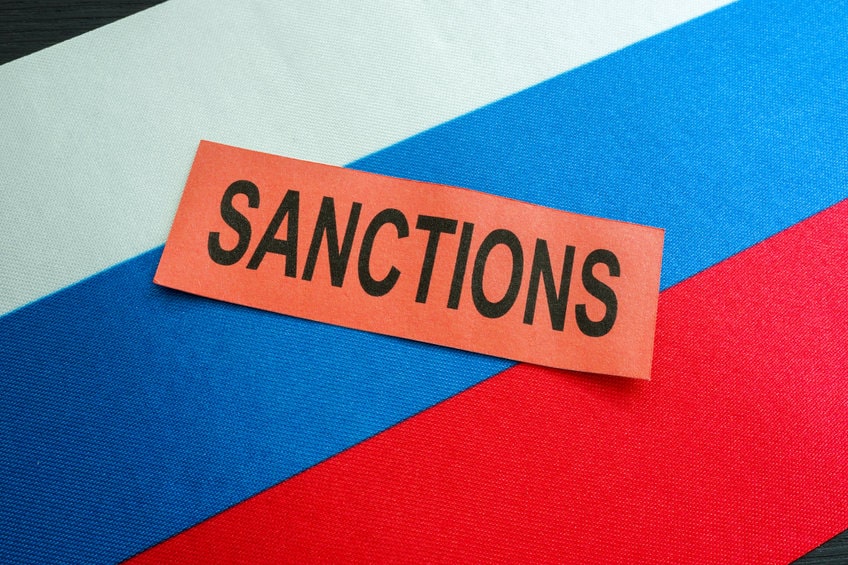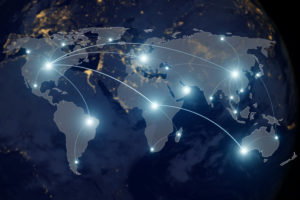
On 24 Feb 2022, after months of political and military posturing, the world woke up to the fury of the guns. Russia had invaded Ukraine under the pretext of “Special Military Operation”. To many, this seems like a Cold-War era conflict between the Eastern and Western European states. In reality, the current Russian full-scale invasion is part of an ongoing Russo-Ukrainian War that began in 2014 when Russia annexed Crimea. Perhaps due to the scale of the Russian military troops amassed for the invasion, the reaction from the countries allied to the European Union (EU) and the United States came fast and furious.
Reactions From the World
In the days leading to the invasion, the European Union, United States and United Kingdom began to announce new sanctions on designated Russian individuals and entities. These included freezing of assets and travel bans on key Russian politicians and oligarchs, trade restrictions on certain goods, and limitations on transactions with designated Russian banks.
In the weeks that followed the invasion, more non-EU countries and regions like Japan, Taiwan, Canada, Australia, Switzerland, South Korea and Singapore unilaterally announced similar sanctions (of varying degrees) in condemning the invasion. Meanwhile, materials and aids (both military and non-military) poured into Ukraine. A more significant action taken during this period was the shutting out of SWIFT (Society for Worldwide Interbank Financial Telecommunication) from seven Russian banks, effectively restricting the fund movements in and out of Russia. The last time such action was taken against a country’s financial system was in 2012 as part of the EU sanction against Iran.
The United Nations General Assembly, on 2 Mar 2022, passed a mostly symbolic resolution demanding an immediate cessation of the Russian aggression. To date, there is no sanction by the United Nations Security Council (UNSC) against Russia, and it is highly unlikely that there is going to be one since Russia holds a veto vote as one of the five permanent members in UNSC.
Sanctions Risks
Key risks that are inherent in any sanctions include:
Unilateral sanctions
Unilateral sanctions are sanctions imposed by a country or a group of countries. Since the invasion, many EU and non-EU countries have announced various sanctions targeting financial institutions, individuals and/or goods. These sanctions are particularly tricky to navigate as they depend on the country that a person or entity is domiciled, the trading partner (usually from the sanctioned country, e.g. Russia) and the business activities.
Singapore, for instance, as of 15 Mar 2022 announced sanctions that apply to financial institutions regulated under the Monetary Authority of Singapore (MAS) Act. Financial institutions are prohibited from:
- (a) entering into transactions with four designated Russian banks (and designated entities which have not been identified yet);
- (b) providing financing or financial services in relation to export to Russia all military goods and certain dual-use goods (Strategic Goods Control List);
- (c) raising new funds for the Russian government and the Central Bank of Russian Federation;
- (d) entering into financial transactions, financial assistance or services to specific sectors in Donetsk or Luhansk; and
- (e) entering into transactions related to (a) to (d) using digital payment token.
There is also a ban on export, transit, transshipment of all military goods and certain dual-use goods under the Strategic Goods Control List.
Hence, if a Singapore registered entity is not a financial institution, and not carrying out any business activities that is related to military goods and dual-used goods in the Strategic Control List, generally the sanction risk is low.
Secondary Sanctions
While unilateral sanctions affect businesses operating from the sanction imposing country, secondary sanctions target individuals or entities who are foreign to the sanction imposing country, to prevent them from dealing with the sanctioned country. This was used by United States’ Office of Foreign Assets Control (OFAC) when it (unilaterally) sanctioned Iran in response to Iranian’s nuclear program and its support to terrorist organizations. OFAC sanction prohibits US citizens and entities from dealing with Iran. However, if a non-US citizen or entity deals with Iran on the prohibited business transactions, that non-US citizen or entity may risk being sanctioned by OFAC under the secondary sanction.
Using a Singapore entity as an example, while it may have complied with the export controls and MAS sanctions on designated banks and non-bank entities, when dealing with a Russian counter-party, it may risk being sanctioned by OFAC under secondary sanction (even though it is a non-US entity), if the business activity turned out to be a sanctioned activity under OFAC. Naturally, this significantly increases the sanction risk when dealing with any Russian individuals and entities, and businesses need to take pro-active actions to assess the sanction risks covering not only Singapore sanctions, but also OFAC sanction on Russia.
For the companies in Hong Kong, Malaysia or any other regions that have not imposed sanctions on Russia, although the risk of unilateral sanctions is limited, secondary sanctions still apply to them. If a company has business or transactions with the individuals or entities subject to U.S. sanctions, the company may risk becoming a subject of U.S. sanctions.
Professional firms and companies are advised to screen their partners and clients against the Consolidated Screening List, OFAC’s Specially Designated Nationals And Blocked Persons List (SDN List), and other sanction lists, before onboarding or continuing business with them.
Anti-sanctions Law
Anti-sanctions law, while not new, has come into the spotlight in recent years due to the United States OFAC sanctions on individuals from China for undermining Hong Kong’s autonomy. In response, China passed the anti-sanctions law in Jun 2021 to effectively protect businesses from secondary sanctions by foreign countries when dealing with Chinese individuals subjected to foreign sanctions. Additionally, the law also makes it illegal for any individuals or entities to comply with foreign sanctions in China.
The United States recently has warned China not to provide any assistance to Russia, including helping it to bypass sanctions imposed by the United States. While still at the diplomatic posturing stage, if United States moves to sanction Chinese individuals and entities, it will take sanction risks to a new level for businesses (both US and non-US businesses) that has business partners in China and United States.
What Should Businesses Do?
Given the unprecedented sanction announcements against Russia since the invasion of Ukraine, many businesses are re-evaluating their operational risks on their businesses with Russia. Sanction laws are complex and there is no one-size fits all solution if one has business interest in Russia. Some pro-active steps that businesses can undertake include:
- Perform customer due diligence on your customers. This should cover beneficial owners of your customers. When evaluating ownership structure, pay attention to OFAC 50% Rule as entities owned by sanctioned individuals due to the 50% Rule are also blocked.
- Understand unilateral sanctions imposed by countries that you do business with. Each sanction is different in the scope of sanctioned individuals, entities, goods, services and transactions. Clarify with the local authorities if you are unsure that your business activities are within the scope.
- Communicate clearly on what can or cannot be done to all subsidiaries operating within and outside the domestic boundary.
Finally, when in doubt, consult a sanction lawyer.
Managing Sanctions Risks with SentroWeb Screening Software
Screening clients by searching various sanction lists and media reports one by one is tedious and time-consuming. Using SentroWeb as your screening tool, you can conduct screening of your clients within seconds against reputable Anti-Money Laundering/ Countering the Financing of Terrorism (AML/CFT) databases, which include the individuals and entities in the United Nations Security Council Consolidated List, OFAC’s SDN list and other sanction lists, as well as the Politically Exposed Persons (PEPs), Special Interest Personas (SIPs) and their Relatives and Close Associates (RCAs). The SentroWeb AML/CFT databases are updated on a daily basis to include all the latest names in the sanction lists.
SentroWeb system also automatically monitors your clients’ names and alerts you when there are any changes in their status. With its Customer Due Diligence (CDD) Module, you can efficiently conduct customer due diligence and risk assessment to effectively manage risks and fulfill regulatory requirements.
To learn more about how SentroWeb can help you manage your sanctions risks, check out SentroWeb’s features here and request a free demo today.
- Monetary Authority of Singapore announced financial sanctions and measures in relation to Russia
- Singapore Customs Strategic Goods Control List
- United States Office of Foreign Assets Control (OFAC) 50% Rule
- Consolidated Screening List by the International Trade Administration
- OFAC’s The Specially Designated Nationals and Blocked Persons List (SDN List)
- SentroWeb Screening System and free demo
Recent Posts:
- 2025 New Updates on Companies Registry’s Guideline on AML/CFT for TCSPs – Overview and Practical Guidance to Comply with the Latest Requirements
- Understanding Trade-Based Money Laundering (TBML): Techniques, Case Study, Red Flags and Best Practices for Risk Mitigation
- AML/CFT Regulations in Malaysia: Unpacking the Differences Between SSM and BNM Regulations



